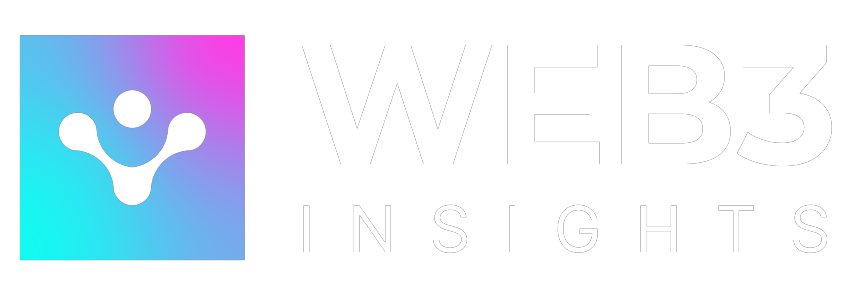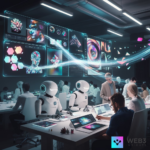AI agents are transforming Web3, automating tasks, optimizing financial decisions, and even managing decentralized organizations. Their potential is enormous, but with great power comes great responsibility. Unlike traditional AI, which operates under centralized regulations, AI in Web3 functions in decentralized systems where accountability is less clear. This raises serious ethical questions: Who is responsible when AI makes a mistake? How do we ensure fairness? What safeguards should exist to protect privacy and security?
While innovation is crucial, we must also consider the ethical implications of AI in Web3. If we fail to address these concerns, we risk building systems that are unfair, biased, or even dangerous. Let’s explore the major ethical challenges AI agents present and how we can balance progress with responsibility.
1. Autonomy and Control

AI agents operate independently, making decisions without human oversight. In theory, this allows for efficiency and automation, but in practice, it introduces risks. What happens when an AI agent acts in a way that negatively impacts users, markets, or entire ecosystems? Unlike traditional software, which can be updated or shut down, AI agents in Web3 often run on smart contracts that cannot be easily altered.
To address this, there must be built-in safeguards. AI systems should include mechanisms for human intervention, especially in high-stakes applications like finance or governance. DAOs (Decentralized Autonomous Organizations) could play a role in overseeing AI agents, ensuring they act ethically and aligning their decisions with the best interests of the community.
2. Privacy and Data Protection

AI agents rely on large amounts of data to function effectively, analyzing trends, making predictions, and automating processes. However, this reliance on data raises serious privacy concerns. Web3 is built on transparency, with blockchain transactions being publicly accessible. This openness conflicts with the need for privacy in AI applications, particularly when handling sensitive user data.
To protect user privacy, AI systems should follow privacy-by-design principles. Technologies like zero-knowledge proofs (ZKPs) can allow AI to verify data without exposing it. Additionally, users should have control over how their data is used, with clear and transparent consent mechanisms in place.
3. Bias and Fairness
AI is only as good as the data it is trained on. If the data contains biases, AI agents will reinforce them, leading to unfair outcomes. In Web3, biased AI could result in discriminatory lending decisions in DeFi, unfair token distributions, or skewed NFT valuations.
To create fair AI systems, developers must actively audit algorithms for bias. Using diverse datasets and ensuring inclusive AI development practices can help prevent discrimination. Open-source AI models can also improve transparency, allowing the community to verify and challenge AI decision-making.
4. Security and Manipulation
Web3 is a highly adversarial environment, with hackers and bad actors constantly looking for exploits. AI agents, if not properly secured, can be manipulated, leading to financial losses or malicious activities. For example, AI-driven trading bots can be tricked into making bad trades, and governance AI agents can be influenced to favor certain groups.
Developers must prioritize security by implementing strong encryption, continuous monitoring, and robust testing against adversarial attacks. AI should also be integrated with smart contracts that have security safeguards, such as automated kill switches in case of suspicious activity.
5. Accountability and Transparency
One of the biggest challenges of AI in Web3 is accountability. When something goes wrong, who is responsible? AI agents do not have legal identities, and decentralized governance makes it difficult to assign blame. Without accountability, AI-driven systems could make harmful decisions without consequences.
To address this, clear governance structures need to be in place. DAOs could take on the role of overseeing AI behavior, with mechanisms to challenge and appeal AI-driven decisions. Transparency is also crucial—AI systems should provide audit trails and explainable decision-making processes so users can understand and verify their actions.
6. Economic Impact
AI agents have the potential to disrupt traditional job markets in Web3. Automated trading, AI-powered NFT curation, and AI-driven content creation could replace human roles, raising concerns about job displacement. Additionally, AI’s influence over markets could lead to monopolization, where a few AI-driven entities control significant portions of the Web3 economy.
A responsible approach to AI in Web3 should focus on augmentation rather than replacement. AI should assist human decision-making, not eliminate it. Additionally, regulations or community-led guidelines could help prevent AI from concentrating too much economic power in the hands of a few.
7. Environmental Concerns
The energy consumption of AI is a growing concern, particularly when combined with blockchain technology. Training AI models require vast amounts of computational power, which can contribute to environmental degradation.
To mitigate this, developers should prioritize energy-efficient AI models and integrate AI with sustainable blockchain solutions like proof-of-stake networks. Encouraging research into low-power AI computation can also help reduce the environmental impact of AI in Web3.
The Importance of Responsible Use of AI Agents
To ensure AI serves as a force for good in Web3, we must adopt responsible AI practices:
- Human-Centric AI: AI should assist humans, not replace them entirely, especially in critical decision-making roles.
- Regulatory Compliance: Even in decentralized systems, AI should align with international AI ethics guidelines to prevent harmful use.
- Education and Awareness: Both developers and users must understand AI’s capabilities, limitations, and ethical risks.
- Community Involvement: The Web3 community should actively participate in setting ethical standards for AI, ensuring alignment with decentralized values.
Conclusion
The integration of AI agents into Web3 is an exciting development, but ethical considerations must be at the forefront of this transformation. Autonomy, privacy, bias, security, accountability, economic impact, and sustainability all present challenges that must be addressed thoughtfully.
By embedding ethical principles into AI development, ensuring community-driven oversight, and prioritizing transparency, we can build AI systems that enhance Web3 without compromising fairness, security, or privacy. The future of AI in Web3 is promising, but only if we create it responsibly.









